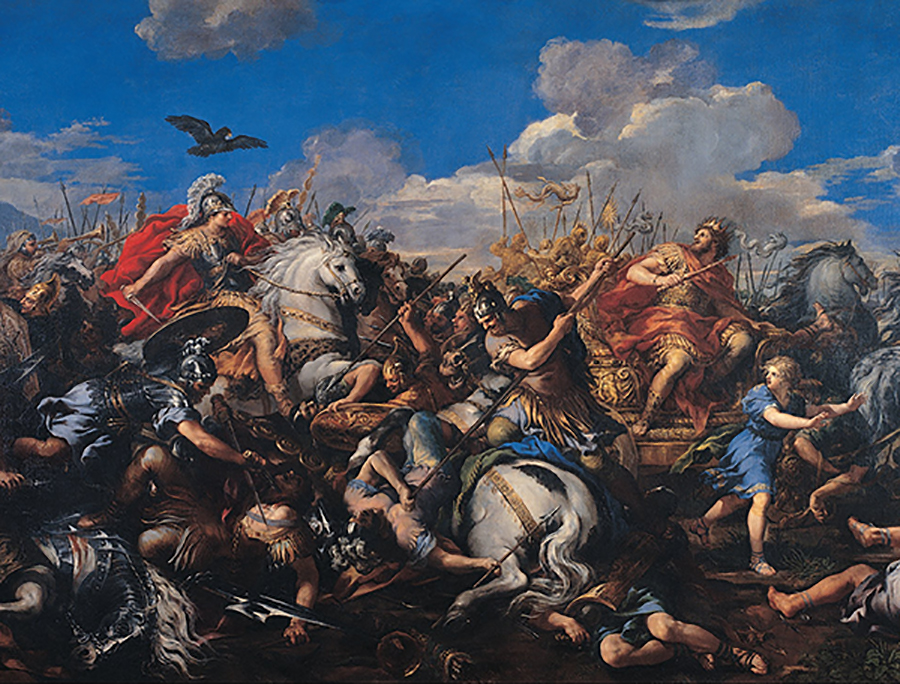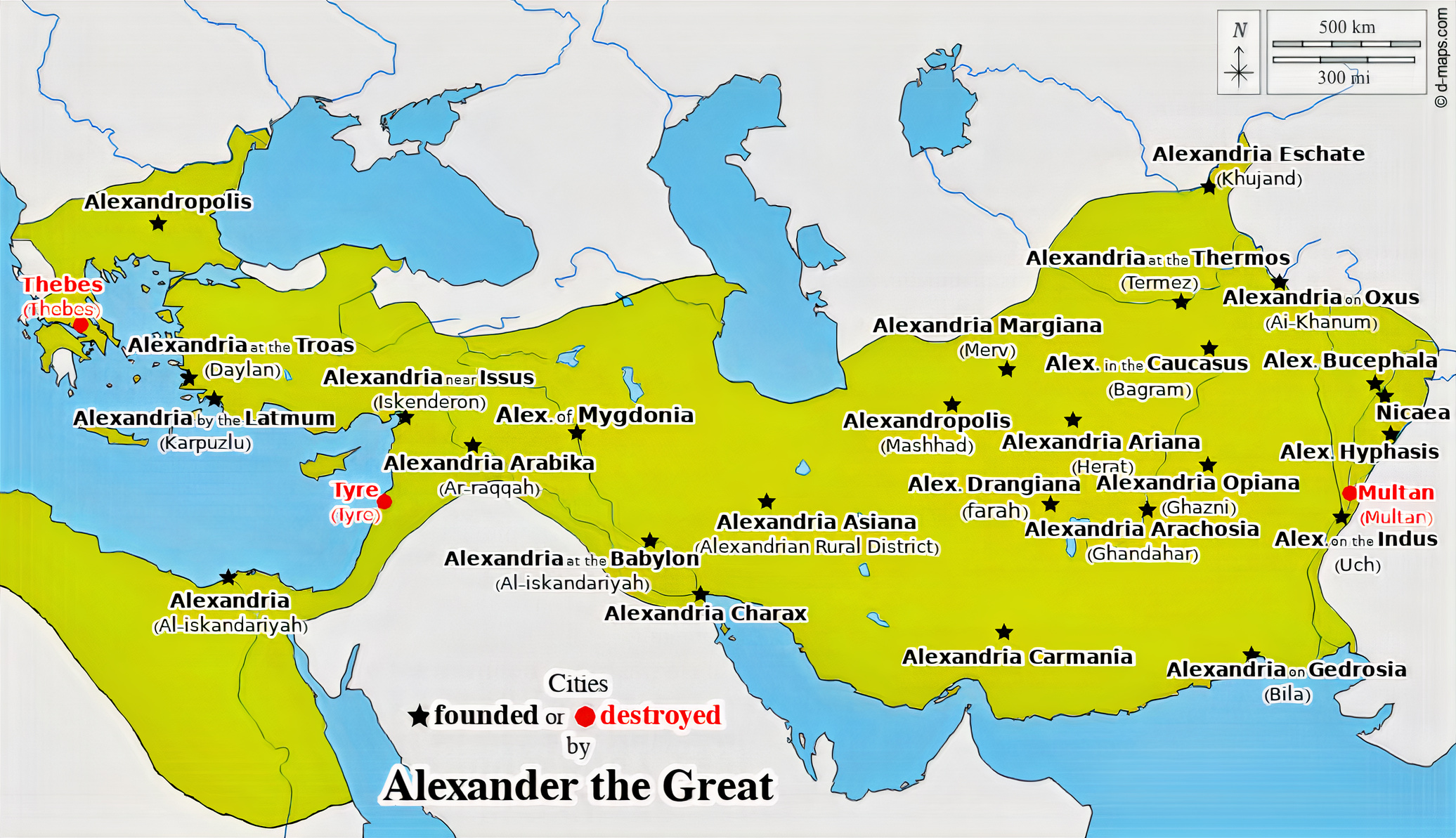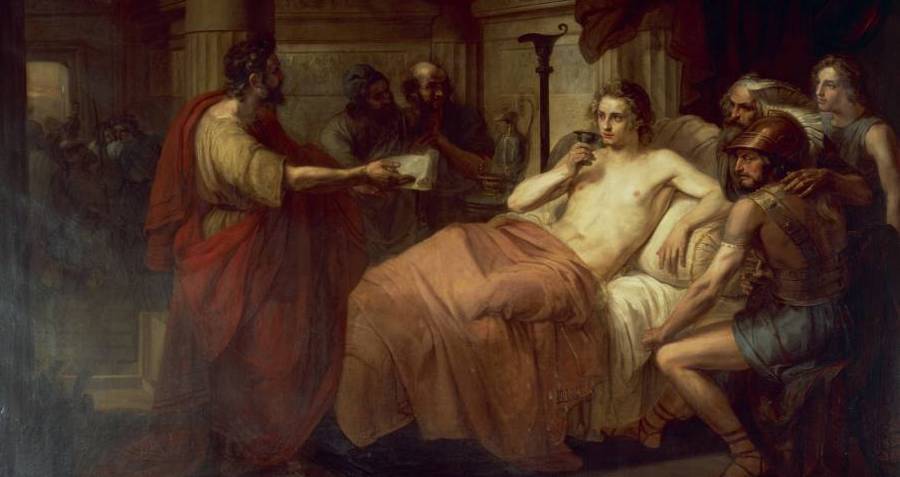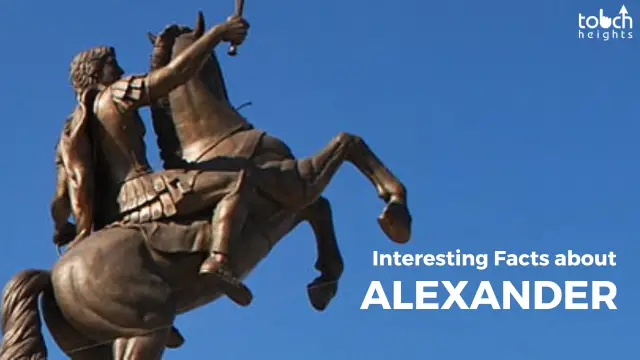Alexander the Great, who ruled Macedon from 336 to 323 B.C., is without a doubt one of history’s most significant people. Greek became the official language of his realm, which extended from Gibraltar to Punjab, and he used it to propagate early Christianity.
Alexander continued his conquests by capturing Thrace and Thebes (in the territory of Greece), Syria, Phoenicia, Mesopotamia, Assyria, Egypt, and then Punjab, in northern India, modern-day Pakistan. This was after his father, Philip II, had united the majority of the recalcitrant city-states of Greece.
The top 13 fascinating facts about this incredible person that you probably didn’t know have been compiled by us. Additionally, you can see how Alexander the Great and Cuban leader Fidel Castro are related in the video below.
Aristotle served as his instructor
Alexander was given one of the best educations available at the time when his father decided to tutor him under the direction of one of the most prominent figures in contemporary philosophical teaching: Aristotle of Stagira. Alexander was born into royalty as the son of King Phillip II of Macedonia and Queen Olympias on July 20, 356 B.C.
Aristotle was Plato’s well-known student at the time, albeit he had not yet established his reputation. So King Phillip II requested Aristotle to teach his son, a move that Alexander’s mother strongly supported since she had great trust in Plato’s perceptive disciple.
Alexander the Great never suffered a defeat throughout his 15 years of conquest

Alexander had a reputation for mobilizing his troops quickly, enabling smaller forces to approach and breach enemy lines before his adversaries were prepared, starting with his first victory at the age of 18. After establishing his rule in Greece, Alexander traveled to Asia (modern-day Turkey) in 334 B.C., where he defeated the Persians led by Darius III in a series of engagements. His tactical methods and tactics are being taught at schools of the armed forces today.
The Phalanx was Alexander’s favorite military strategy
The phalanx was a powerful battle machine composed of a rectangular mass of closely ranked soldiers. Soldiers in a phalanx carried long spears with metal tips or sharpened wood points that might reach lengths of up to five meters. The strategy was developed by Alexander’s father, Philip, who discovered it through watching Greek forces in action.
Alexander had a condition called heterochromia iridium
Alexander the Great had heterochromia iridium, a disorder in which the colored component of the eye (iris) is multicolored, according to ancient records from his day. Alexander has one brown eye and one blue eye.
It was love at first sight when Alexander first saw Roxanne, his future wife
The adolescent daughter of a Bactrian lord, Roxanne, grabbed Alexander’s attention when he was reviewing his prisoners after his stunning capture of Sogdian Rock in 327 B.C. The couple’s lone son, Alexander IV, was born to Roxanne a few months after Alexander’s passing.
Alexander experienced ailurophobia as well
Apart from being generals, Genghis Khan, Julius Caesar, Adolf Hitler, Napoleon Bonaparte, and Benito Mussolini all had this trait. All of them are said to have had ailurophobia, or a fear of cats.
More than 20 cities bear his name

In addition to naming a city after his horse, Alexander founded hundreds of settlements (often constructed around former military forts) and gave them all the name Alexandria. The most well-known of them, Alexandria, is currently Egypt’s second-largest city. It was established near the mouth of the Nile in 331 B.C.
An Empire Builder was Alexander the Great
Alexander transformed the landscape of Europe and Asia for 13 years by subduing all of his neighbors’ foes and several more countries. He oversaw a terrifying military army on one of the largest excursions in history, extending his empire from Greece to present-day Pakistan and bringing Greek civilization to the majority of the world. He had over 43,000 soldiers and 5,500 cavalries under his command.
Alexander’s demise is still unknown
Alexander the Great attended a dinner party that was hosted by one of his close confidants on May 29, 323 B.C. while making plans for his next conquests. He began to feel sick after a protracted period of excessive drinking, and he went to bed with a temperature that was starting to rise. One of the most illustrious conquistadors in human history was declared dead at a relatively young age on June 11, twelve days after he collapsed from exhaustion and was unable to even leave his bed. He was 32.

Of course, his untimely passing sparked a lot of conspiracies. Serious suspicions were raised regarding his general Antipater and Antipater’s son Cassander. Some others even suggested that Aristotle could have been involved.
Alexander “died” in reality six (6) days later
Alexander’s body didn’t start to decompose for a full six days after he was declared dead. This proved to the ancient Greeks what they already knew about the young Macedonian king: that he was not just a regular man, but a deity.
Alexander may have died from the neurological condition Guillain-Barré Syndrome (GBS), according to a clinical study conducted in the twenty-first century. Alexander wasn’t yet dead, so there weren’t any outward indications of decomposition on the body, the argument goes.







